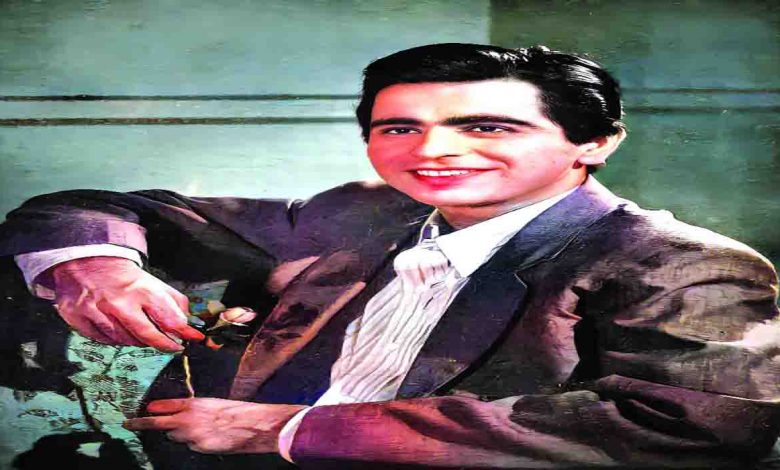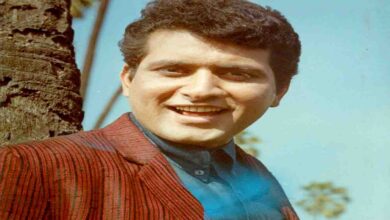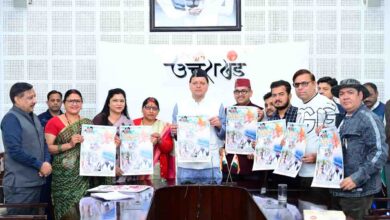Curtains ring down on an era

Thursday, 08 July 2021 | Team Viva
Among many facets that define actor Dilip Kumar’s legendary status are the characters that he has played over the years. While it’s impossible to shortlist a handful of films for a man who was an institution on acting, Team Viva lists some of his best performances
If we were to even attempt to introduce the man, it would be akin to holding candle to the sun. Bollywood legend Dilip Kumar, feted largely as Hindi cinema’s “Tragedy King”, enjoyed stardom that was buoyed by more than just that image. Among many facets that define his legendary status are the characters that he has played over the years. While it’s impossible to shortlist a handful of films for a man who was an institution on acting, here are some of his best performances:
Daag (1952)
Kumar won the first-ever Filmfare Award in the Best Actor category for his performance in this film. Daag was produced and directed by Amiya Chakravarty, and starred Dilip Kumar, Nimmi, and Lalita Pawar in lead roles. The film’s music is composed by the duo Shankar Jaikishan. Madhubala was the first choice of Chakravarty to play the female lead in the film, but she couldn’t because of her hectic schedule. She was also shooting for Tarana and Sangdil at that time, which starred her alongside Kumar. Daag was a hit at the box office.
Devdas (1955)
Devdas was directed by Bimal Roy, based on the Sharat Chandra Chattopadhyay novel Devdas. The film had Kumar as a protagonist, and Vyjayanthimala in her first dramatic role where she played a courtesan named Chandramukhi and Suchitra Sen in her Bollywood debut as Parvati ‘Paro’. Kumar was the original Devdas. He received glowing praises for the role. Forbes also included his performance in the film on its list of ‘25 Greatest Acting Performances of Indian Cinema’.
Naya Daur (1957)
Naya Daur was directed and produced by B R Chopra. It was written by Akhtar Mirza and stars Kumar and Vyjayanthimala with Ajit Khan and Jeevan in the supporting roles. The film narrates the story of Shankar (Kumar) and Krishna (Khan), two best friends who fall for the same woman, Rajni (Vyjayanthimala). For this film, Kumar won the Filmfare Award for Best Actor for the third time in a row, being his fourth overall. The film was later dubbed in Tamil as Pattaliyin Sabatham in 1958. It also inspired Aamir Khan’s Academy Award-nominated film Lagaan (2001).
Madhumati (1958)
Madhumati is a 1958 Indian Hindi-language paranormal romance film directed and produced by Bimal Roy and written by Ritwik Ghatak and Rajinder Singh Bedi. The film stars Kumar and Vyjayanthimala in the lead roles. The plot focusses on Anand, a modern man who falls in love with a tribal woman named Madhumati. The relationship does not reach a logical conclusion during their lifetimes and the are reincarnated.
The film became the highest-grossing Indian film of the year, and one of the most commercially successful and influential Indian films of all time. It received positive reviews from critics, who praised the soundtrack and the performance of the cast.
Madhumati was one of the earliest films to deal with reincarnation and was described by analysts as a potboiler that has a gothic and noir feel to it. It inspired later regional and international films that have reincarnation-based themes.
Mughal-e-Azam (1960)
The film gave him one of the most iconic roles of Prince Saleem. The 1960 epic historical drama is directed by K Asif and produced by Shapoorji Pallonji. Starring Prithviraj Kapoor, Madhubala, Durga Khote, and Kumar, it follows the love affair between Mughal Prince Salim and Anarkali, a courtesan. Salim’s father, Emperor Akbar, disapproves of the relationship, which leads to a war between father and son.
Asif had initially rejected Kumar for the part of Prince Salim but accepted upon the insistence of the film’s producer. According to Kumar, “Asif trusted me enough to leave the delineation of Salim completely to me.” It is also said that Kumar faced difficulty while filming in Rajasthan owing to the heat and the body armour he wore.
It held the distinction of being the highest-grossing Bollywood film of all time for straight 15 years and the first black-and-white Bollywood film to be digitally coloured. It also won the National Award as well as four Filmfare Awards.
Ganga Jamuna (1961)
This film was written and produced by Kumar, and directed by Nitin Bose, with dialogues written by Wajahat Mirza. It stars Kumar, Vyjayanthimala, and Nasir Khan in the lead roles. Set in a rural part of the Awadh region of Northern India, the film tells the story of two impoverished brothers, Ganga and Jamuna (Dilip Kumar and Nasir Khan), and their poignancy and sibling rivalry on opposing sides of the law, one a dacoit criminal and the other a police officer.
It was one of the biggest hits of the 1960s and one of the most successful Indian films in terms of box office collection. The critics praised its story, screenplay, direction, cinematography, and music along with the performances of the lead actors Kumar and Vyjayanthimala.
The film was nominated in seven categories at the 9th Filmfare Awards, including Best Film and Best Director for Kumar and Bose, respectively, while winning three, Best Actress for Vyjayanthimala, Best Cinematography for V Balasaheb, and Best Dialogue Writer for Wajahat Mirza.
Kumar’s performance as Ganga is considered one of the finest acting performances in the history of Indian cinema, and inspired future generations of Indian actors, most notably Amitabh Bachchan. Its plot also inspired the screenwriter duo Salim–Javed, who wrote scripts exploring similar themes in later Bachchan-starring hits such as Deewaar (1975), Amar Akbar Anthony (1977), and Trishul (1978).






